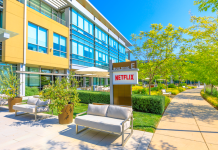Have you ever wondered how prominent figures like Benjamin Franklin achieved remarkable success? One key factor in his rise as a writer, publisher and politician was his mastery of “social intelligence.” What follows is my analysis of how Franklin’s lessons might apply to our dear town of Los Gatos.
Essentially, social intelligence is about navigating social interactions with awareness, empathy and a deep understanding of others’ perspectives. This is a skillset particularly valuable in Los Gatos, since we are a community deeply invested in civic engagement and community well-being.
One of Benjamin Franklin’s early lessons in navigating social interactions came at a significant cost. As a teenager, he wrote satirical essays under the pseudonym Silence Dogood for his brother’s newspaper. When his brother discovered the deception, it caused a rift between them. This experience underscored the importance of honesty and transparency in building trust.
Later, Franklin faced a challenging situation where his employer, feigning kindness, subtly encouraged him to train new hires while secretly planning to replace him. This experience honed Franklin’s ability to read between the lines, recognize underlying motives and navigate potential pitfalls.
When Franklin entered politics, he had by then further enhanced his social intelligence. Thus, when he encountered another local politician who out of jealousy, had developed a dislike of Franklin, he knew what to do. Learning that this potential nemesis was a lover of rare books, Franklin flattered him by requesting the opportunity to borrow and review one of the politician’s rarest books, promising to return it after carefully reviewing it.
The potential nemesis was delighted by Franklin’s attention, and agreed to let Franklin borrow the book. After a few days, Franklin fulfilled his promise, returning the book in the same excellent condition that he’d first received it in. This led to Franklin and this other politician becoming lifelong friends and political colleagues.
By appealing to the interest of his political opponent, he disarmed a potential nemesis and built a bridge of connection. This highlights the importance of understanding individual motivations and leveraging them to build relationships.
Franklin not only borrowed the rare book but also returned it in pristine condition, demonstrating his respect for the other politician’s prized possession. This act of reciprocity fostered trust and laid the foundation for a lasting friendship.
Perhaps the most striking example of Franklin’s social intelligence is evident in his time as ambassador to France. To secure crucial French support for the American Revolution, he immersed himself in French culture, mastered the language and cultivated relationships with influential figures. While some might view his approach as strategic, and although he generated tremendous antagonism and a substantial number of negative reactions at home, it ultimately proved successful, demonstrating his understanding of human nature and his ability to adapt to different social contexts.
So, what did I learn from the master Benjamin Franklin about how we can become more socially intelligent?
- Be honest and open with others.
- Pay close attention to how people interact within our community.
- Truly listen to others’ perspectives, even when they differ from your own.
- Understand your own biases and how they might influence your interactions.
- Build strong connections within our community and cultivate a positive reputation as engaged and responsible citizens.
Whether we’re discussing development plans, traffic concerns or the future of our schools, considering all perspectives is crucial. It’s about truly listening to others, recognizing their unique backgrounds and experiences, and seeking common ground to find solutions that work for everyone.
Getting involved in local organizations like the Rotary Club, volunteering for community service projects and simply engaging in respectful dialogue with our neighbors—these are the building blocks of a strong community.
Assuming I learned Franklin’s lessons correctly by concluding these principles are appropriate ones for us to follow, then in applying them we can navigate the complexities of community life with greater effectiveness, build stronger relationships and work together to create an even more vibrant and thriving Los Gatos.
If on the other hand, I really mis-learned what the stories about Franklin’s life teach us, I suppose I can nevertheless still write in an underground kind of way, just as he did in writing letters to his brother’s paper under the pseudonym Silence Dogood.










